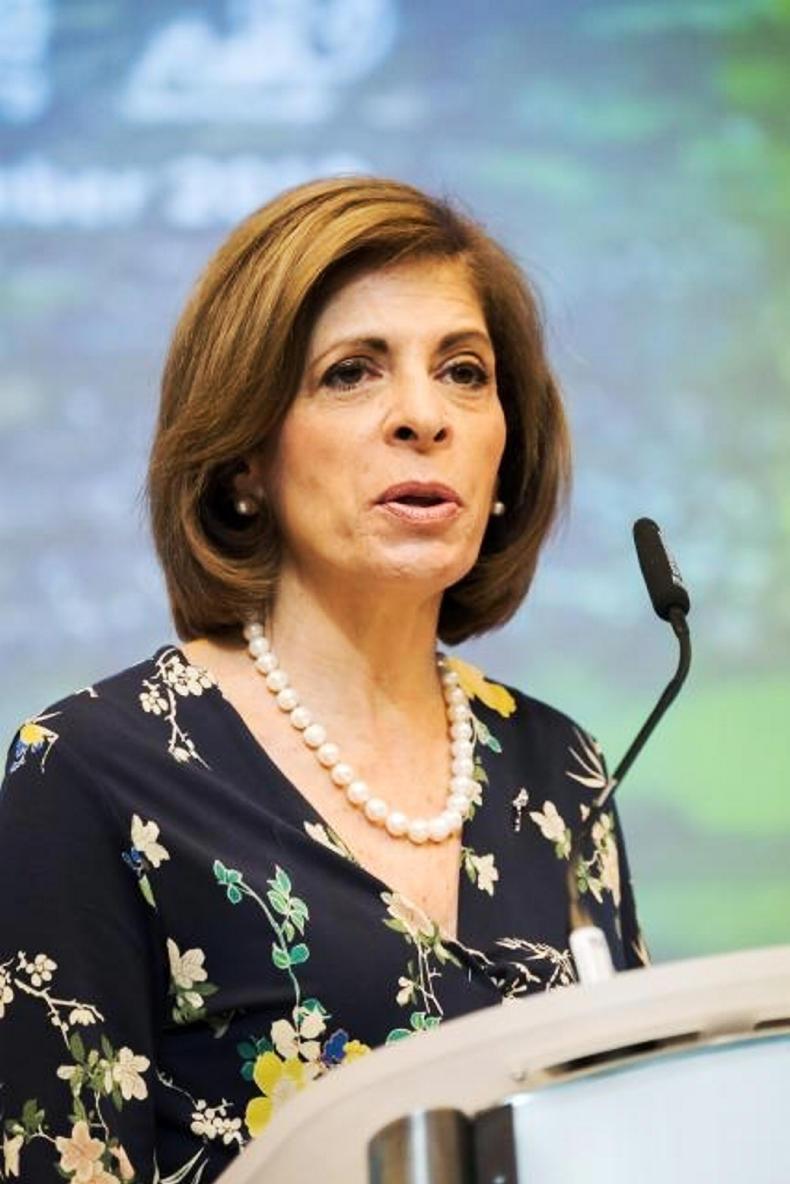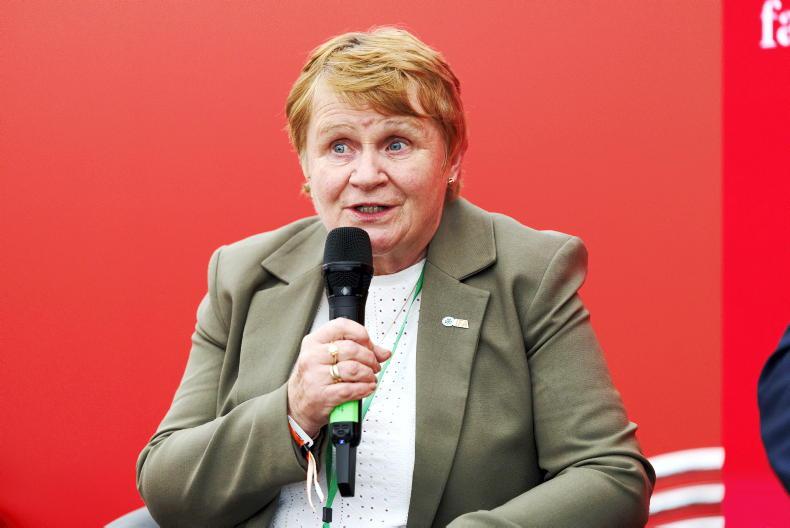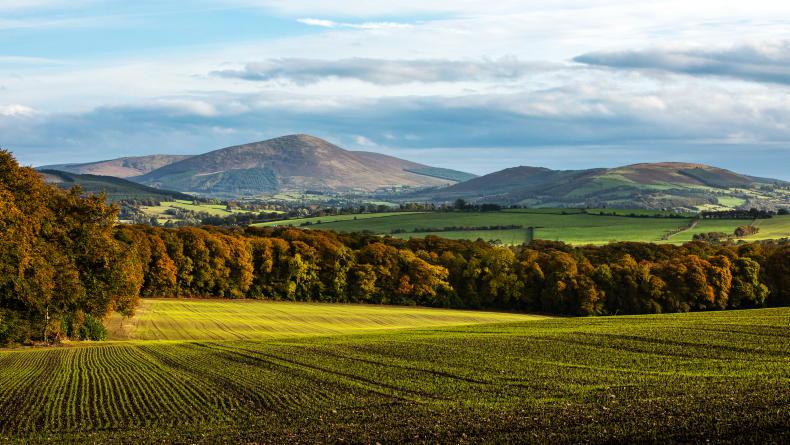When the current European Commission took up their posts in December, the President set the ambitious target of making the EU the world’s first carbon-neutral continent by 2050.
Everything the Commission would do during its term would be shaped and geared towards achieving this objective.
However, the arrival of coronavirus will decimate EU economies and we have already observed how the wealthier members have been able to intervene in supporting their people and businesses in a way that members with weaker economies cannot afford.
This has been facilitated by relaxation of state aid rules which make a mockery of the single market principle.
EU structure
The financial crisis caused by coronavirus reveals the weakness of the EU not having a centralised decision-making process that can act with speed. The United States, Japan, and the UK, each with their own currency, can issue what are described as war bonds to generate huge revenue to re-float their economies. Agriculture has particularly benefited from this in the US and Japan.
Within the EU, the wealthy countries can also do so but not so for the weaker economies who desperately need a cash injection to assist their recovery.
Germany and France have now came to agreement on the creation of a €500bn fund for this purpose but there remains considerable opposition from smaller but wealthy countries like Sweden, Finland, Denmark Austria and the Netherlands.
The weaker economies desperately need a cash injection to assist their recovery
Next week, there is an ambition that this will be put in place and if that is achieved, sorting out the seven year multi-annual financial framework (MFF) or the EU budget becomes urgent.
Farm to Fork
The new agriculture strategy that will reflect farming’s contribution to the green deal will require financing to a higher level than was previously proposed in budget negotiations that broke down in February.
The strategy recognises the need for farming to be commercially viable yet many measures will have the effect of reducing productivity, especially the 25% organic target.
Germany has already indicated that it is prepared to go further and with Chancellor Merkel going into the final year of her time as German leader holding the six-month presidency of the EU from 1 July, we can expect a big drive to get the MFF concluded and the CAP finalised.
Brexit
The UK has now revealed the tariff structure it proposes once the break with the EU is complete at the end of the year. These can be eliminated in a trade deal with the EU but of course whether that happens is in doubt.
Similarly they confirmed that they would undertake checks on goods entering Northern Ireland and the single market from the UK.
Coronavirus combined with Brexit has created huge uncertainty for farmers
This was politically controversial and the UK ambition is that this will be an exceptionally light-touch process, and there is no certainty that this will satisfy the EU side.
Coronavirus combined with Brexit has created huge uncertainty for farmers but one thing that is certain for Irish farmers is that if a a deal isn’t concluded between the EU and UK avoiding tariffs, then the Irish beef industry in particular will take a hit from which it is impossible to see how it can recover.
Read more
Farm to Fork and Biodiversity plans will shape EU agriculture – McGuinness
Dempsey at Large: the Green Deal - intimidated into silence
Now to build a strategy for ag around EU vision
When the current European Commission took up their posts in December, the President set the ambitious target of making the EU the world’s first carbon-neutral continent by 2050.
Everything the Commission would do during its term would be shaped and geared towards achieving this objective.
However, the arrival of coronavirus will decimate EU economies and we have already observed how the wealthier members have been able to intervene in supporting their people and businesses in a way that members with weaker economies cannot afford.
This has been facilitated by relaxation of state aid rules which make a mockery of the single market principle.
EU structure
The financial crisis caused by coronavirus reveals the weakness of the EU not having a centralised decision-making process that can act with speed. The United States, Japan, and the UK, each with their own currency, can issue what are described as war bonds to generate huge revenue to re-float their economies. Agriculture has particularly benefited from this in the US and Japan.
Within the EU, the wealthy countries can also do so but not so for the weaker economies who desperately need a cash injection to assist their recovery.
Germany and France have now came to agreement on the creation of a €500bn fund for this purpose but there remains considerable opposition from smaller but wealthy countries like Sweden, Finland, Denmark Austria and the Netherlands.
The weaker economies desperately need a cash injection to assist their recovery
Next week, there is an ambition that this will be put in place and if that is achieved, sorting out the seven year multi-annual financial framework (MFF) or the EU budget becomes urgent.
Farm to Fork
The new agriculture strategy that will reflect farming’s contribution to the green deal will require financing to a higher level than was previously proposed in budget negotiations that broke down in February.
The strategy recognises the need for farming to be commercially viable yet many measures will have the effect of reducing productivity, especially the 25% organic target.
Germany has already indicated that it is prepared to go further and with Chancellor Merkel going into the final year of her time as German leader holding the six-month presidency of the EU from 1 July, we can expect a big drive to get the MFF concluded and the CAP finalised.
Brexit
The UK has now revealed the tariff structure it proposes once the break with the EU is complete at the end of the year. These can be eliminated in a trade deal with the EU but of course whether that happens is in doubt.
Similarly they confirmed that they would undertake checks on goods entering Northern Ireland and the single market from the UK.
Coronavirus combined with Brexit has created huge uncertainty for farmers
This was politically controversial and the UK ambition is that this will be an exceptionally light-touch process, and there is no certainty that this will satisfy the EU side.
Coronavirus combined with Brexit has created huge uncertainty for farmers but one thing that is certain for Irish farmers is that if a a deal isn’t concluded between the EU and UK avoiding tariffs, then the Irish beef industry in particular will take a hit from which it is impossible to see how it can recover.
Read more
Farm to Fork and Biodiversity plans will shape EU agriculture – McGuinness
Dempsey at Large: the Green Deal - intimidated into silence
Now to build a strategy for ag around EU vision









SHARING OPTIONS